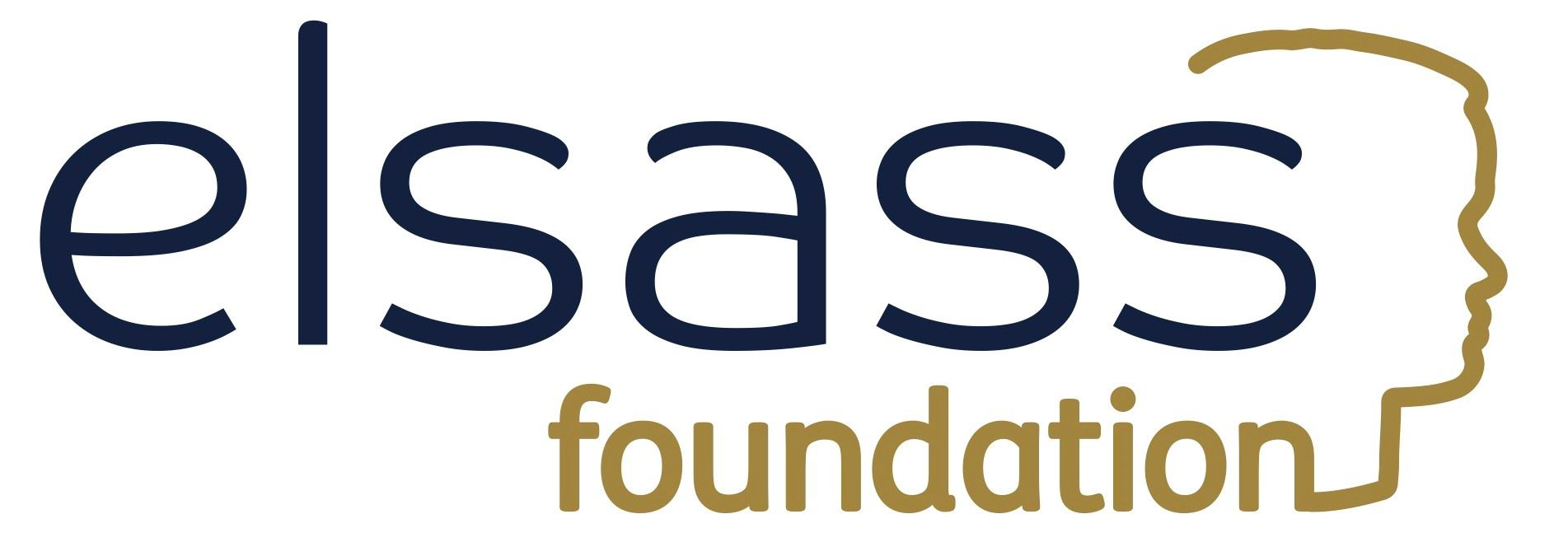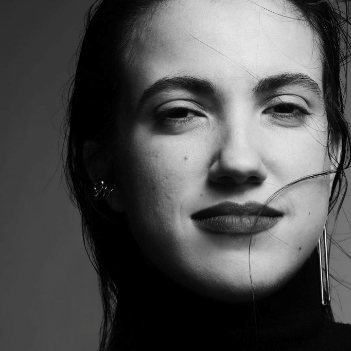
Hannah Diviney
Presentation title:
An interview with Hannah Diviney and Research Works
Hannah Diviney is one of the most impressive new young faces and voices in the public eye. The multi hyphenate is a writer and a disability advocate (her biggest work includes the wildly successful change.org petition encouraging Disney to create a disabled Disney Princess and making international news headlines after successfully getting both Lizzo and Beyonce to change ableist lyrics). She’s also an actress – having made her television debut in the groundbreaking SBS show Latecomers as arguably the first disabled person to lead a show in the world. Her feature film debut Audrey is set to hit cinemas in 2024. As if that wasn’t enough, she’s also the Editor in Chief of global grassroots youth newsroom Missing Perspectives, dedicated to platforming the lived experience of girls and young women around the world. Her debut book, I'll Let Myself In was released earlier this year.
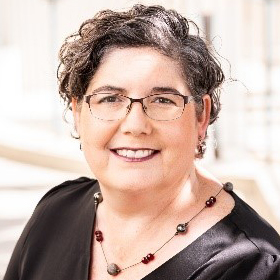
Dr Stacey Dusing
Presentation title:
Moving to Learn, Learning to Move: How Play, Exploration, and Cognition Intertwine in Pediatric Rehabilitation
Dr. Stacey Dusing is the Sykes Family Chair of Pediatric Physical Therapy, Health and Development, Tenured Associate Professor, and Director of Pediatric Research in the Division of Biokinesiology and Physical Therapy at the University of Southern California where she also directs the Motor Development Laboratory. She is a board certified pediatric physical therapy specialist with over 25 years of clinical and research experience working with infants and children. Her research focuses on postural control, reaching, early exploration and interventions to advance development in infants with or at high risk of having developmental disabilities. Equity in policy, health service, and diverse stakeholder engagement is integrated throughout her research, advocacy, and clinical implementation of interventions. Dr. Dusing received her BS in Physical Therapy from Daemen College in Buffalo NY. She earned her MS and PhD in Human Movement Science at The University of North Carolina at Chapel Hill and completed an NIH career development award at the University of Delaware. She is a graduate of the Leadership Education in Neurodevelopmental Disabilities (LEND) program.
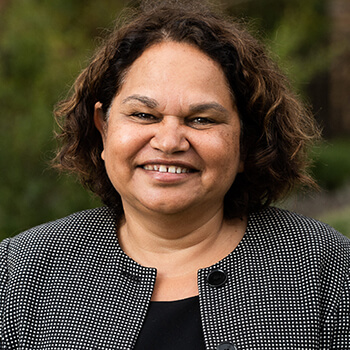
Prof Sandra Eades
Presentation title:
Principles to guide research and service provision for Aboriginal and Torres Strait Islander children and families
Professor Sandra Eades (BMed, PhD, FAHMS) is Deputy Dean Indigenous and Rowden White Chair in the Faculty of Medicine, Dentistry and Health Sciences at the University of Melbourne. Sandra is a Noongar woman from Mount Barker, WA, and is a recognised leader in Aboriginal health. Sandra was Australia’s first Indigenous person trained in medicine to be awarded a PhD. Professor Eades is an Initiating Fellow of the Australian Academy of Health and Medical Sciences. Professor Eades’ awards and recognition include the Lowitja Institute Inaugural Award for Leadership in Aboriginal health research (2015), the Medical Journal of Australia Research Publication Award (2013), and the NSW Public Health Association award (2007). In 2006 she was named the NSW Woman of the Year in recognition of her research contributions to Aboriginal communities, and in 2014 was recognised as one of 100 Aboriginal and Torres Strait Islander women living or deceased who have contributed positively to their communities in the Centenary of International Women’s Day.
Professor Eades has more than 100 career publications in the 14 years since the awarding of her PhD, including 90 peer reviewed papers of which 49 have been published in the last 5 years. The national relevance of her research can be seen in her highly cited papers which include the WA Aboriginal child health survey volume 1 (367 cites), psychosocial interventions for supporting women to stop smoking during pregnancy (708 cites), Ten principles relevant to health research among Indigenous Australian populations (163 cites), Indigenous women and smoking during pregnancy: knowledge, cultural contexts and barriers to cessation (186 cites), Infant care practices in a metropolitan Aboriginal population (60 cites), The health of urban Aboriginal people (83 cites), An intensive smoking intervention for pregnant Aboriginal women RCT (84 cites) and a Study protocol: our cultures count, the Mayi Kuwayu study, a national longitudinal study of Aboriginal and Torres Strait islander wellbeing (61 cites).
As CIA Professor Eades currently leads a NHMRC Population Health CRE (Aboriginal child and adolescent health improvement through Aboriginal leadership and collaborative research teams $2.5M) and major study of Aboriginal adolescent health as CIA ($2M). With collaborators, she is an investigator on NHMRC grants worth $13.4M including a role as CIC on a NHMRC Health Services CRE in Partnership Pathways to Better Care and Outcomes for Aboriginal Young People (2018-2022). Sandra also is a CI on the ARC Linkage Grant ‘Linking for Life’ which utilizes the Social Investment Data Resource with WA linked data from 1990-2021.
Contribution to field of research:
Within the field of child health Professor Eades early work influenced the introduction of Commonwealth funded maternal and child health services in Aboriginal Community Controlled Health Services through the Healthy for Life policy initiative; early cohort studies of infant health demonstrate very high rates of smoking in pregnancy among Aboriginal women and high rates of environmental tobacco smoke exposure among infants. She advocated heavily for investments to tackle high rates of Indigenous smoking with much greater investments post the release of the first Indigenous Burden of Disease report. In addition to her work in child health Professor Eades led the completion and publication of the only international randomised controlled trial of a smoking intervention for pregnant Indigenous women. She has implemented a second randomised controlled trial of a tailored intervention to improve primary health care for type 2 diabetes among ACCHOs.
Beyond RCTs, Professor Eades has conceptualised and supervised research resulting in the publication of key methodological papers which strengthen our understanding of the psychometric properties and utility of measures of psychological distress in Aboriginal people. The first addresses the use of the Strengths and Difficulties Questionnaire with Aboriginal children and youth (Williamson 2013) and the second addresses the use of the K10 with older Aboriginal people (McNamara 2014).
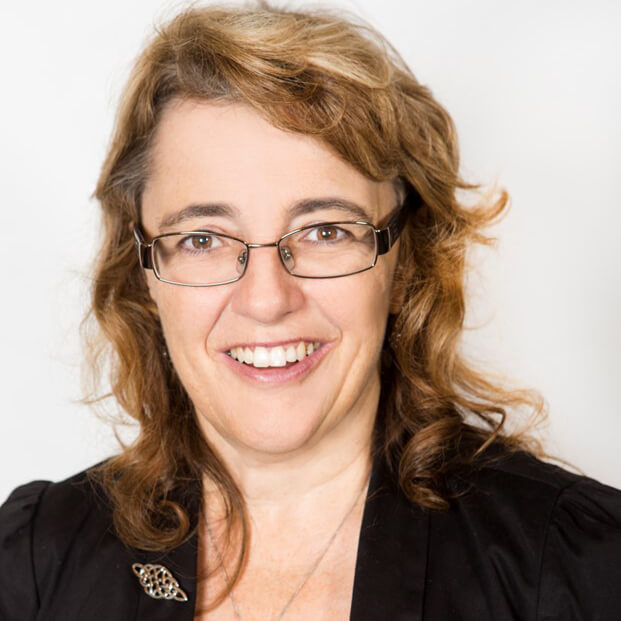
Dr Nicole Gerrand
Presentation title:
What matters in adulthood for people with lived experience of disability?
Nicole was born with Cerebral Palsy and grew up in Northern Tasmania and then moved to Canberra when she was twelve. Nicole completed Bachelor of Arts (Hons) and Masters of Arts at the Australian National University and then completed a PHD in Philosophy from the University of Wollongong. Her thesis was titled “Body parts of One’s Own A Moral Argument for the Ownership of Human Body Parts. She has published articles on embryo research and issues relating to organ donation, and presented papers on these and other topics in medical ethics including Research Ethics and Prenatal Diagnosis. Her current research area is conceptions of disability and identity, including focussing on disability and language and critiquing the models of disability.
Nicole joined the then Hunter Area Health Service in 1998 as the Professional Officer (Research Ethics). During the 25 years Nicole worked the Hunter Area and then Hunter New England Health Services, her position evolved into the Manager Research Ethics and Governance. Throughout her career, Nicole’s goal was to facilitate good ethical research, with a particular focus on ensuring the autonomy and welfare of research participants. Nicole retired in 2023.
Nicole was a member of the Research Committee of the Cerebral Palsy Alliance NSW prior to its dissolution, and she now continues to provide advice on research as required.
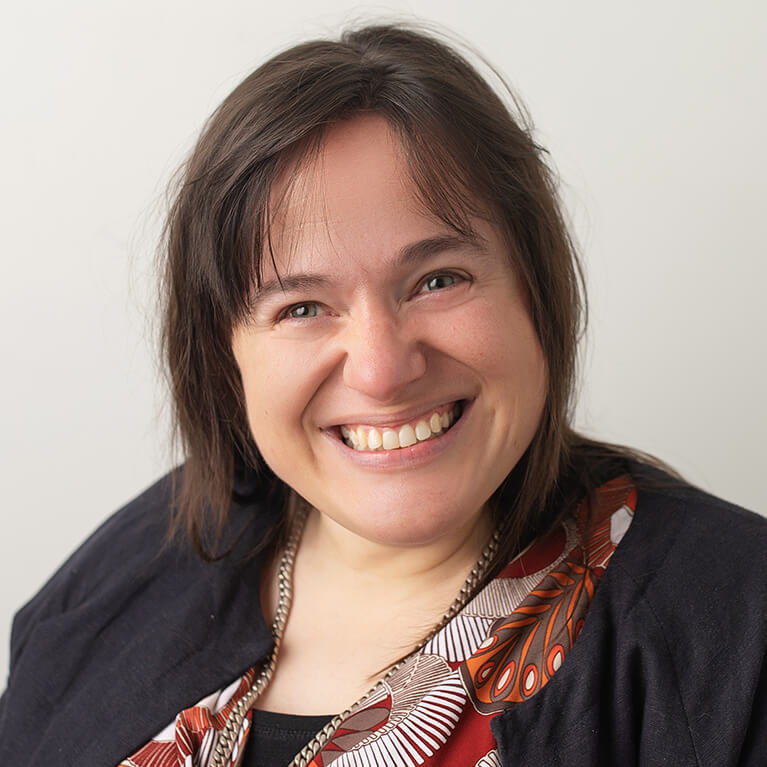
Amy Hogan
Presentation title:
What matters in adulthood for people with lived experience of disability?
Amy Hogan is based in Auckland, New Zealand. She has 20 years’ experience implementing and overseeing national disability research projects as a researcher, analyst, writer, and advocate focusing on health and social justice. I am now seeking to bring my unique combination of personal and professional experience into the wider international forums.
She lives with cerebral palsy (CP) and have, over the past decade, incorporated her day-to-day experience into her work at the Cerebral Palsy Society of New Zealand. Here she has developed and implemented research, policy, advocacy, system change. She has completed my Masters (Msc First Class Honors Psychology). Her thesis analysed the language construction of purported treatments and cures. She also hassignificant experience as a lecturer, panellist, keynote speaker and provider of subject-matter expertise. Audiences have included government ministers, senior international academics, policy advisers, community groups, students, and multidisciplinary professional groups.
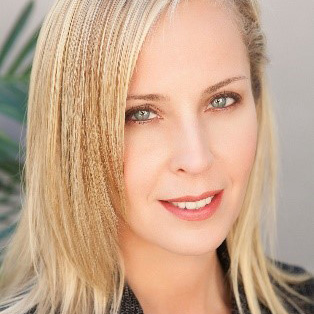
Dr Elizabeth Laugeson
Presentation title:
The Science of Making Friends: The UCLA PEERS Program
Dr. Elizabeth Laugeson is a Clinical Professor in the Department of Psychiatry and Biobehavioral Sciences at the UCLA Semel Institute for Neuroscience and Human Behavior and is a licensed clinical psychologist. Dr. Laugeson is the Director of the UCLA Tarjan Center, University Center for Excellence in Developmental Disabilities, and is the Founder and Director of the UCLA PEERS Clinic, which is an outpatient hospital-based program providing parent-assisted social skills training for individuals from preschool to adulthood. She also serves as the Program Director for the Predoctoral Psychology Internship Program in Autism and Neurodevelopmental Disabilities at UCLA. Dr. Laugeson has trained tens of thousands of mental health professionals, educators, and families worldwide, and is dedicated to developing and testing evidence-based treatments to improve social skills across the lifespan and across the globe. As one of the only empirically supported and internationally recognized social skills programs for neurodivergent youth, her program is currently used in over 150 countries and has been translated into over a dozen languages.
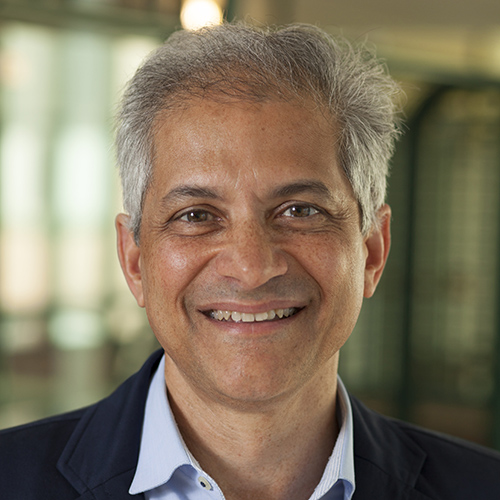
Prof Unni Narayanan
Presentation title:
What’s in it for them? Reimagining PROMs to Foster Respect and Response
Professor Unni Narayanan is a pediatric orthopaedic surgeon at the Hospital for Sick Children (Sickkids) and professor in the Departments of Surgery, the Rehabilitation Sciences Institute and the Institute of Health Policy, Management & Evaluation at the University of Toronto. He is a Senior Associate Scientist in the Child Health Evaluative Sciences Program of the Research Institute at SickKids.
His clinical practice is focused on the care of children with cerebral palsy (CP), complex lower limb deformity and trauma. His research program (http://lab.research.sickkids.ca/pscoreprogram/) has focused on understanding patient priorities to inform the development of meaningful patient-reported outcome measures (PROMs); and applying these in clinical trials to evaluate the effectiveness of interventions for pediatric musculoskeletal and other disorders. The PROMs developed by his team have been translated widely and used worldwide. He leads the CHOP study, a large international cohort study of hip outcomes in CP. He has won numerous research awards and is funded by the Canadian Institutes of Health Research (CIHR) and other agencies. A Past President of the American Academy of Cerebral Palsy & Developmental Medicine, he has also served on the Boards of the Pediatric Orthopaedic Society of North America, the CP Research Network and the CP Foundation, and as a Scientific Officer for the CIHR College of Reviewers.
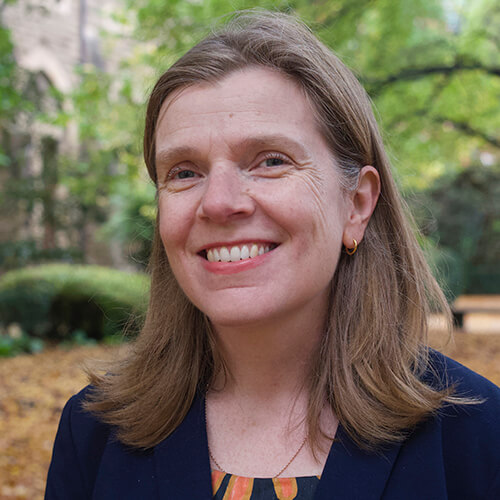
Prof Alicia Spittle
Presentation title:
Navigating Implementation: Research to Clinical Impact
Professor Alicia Spittle is a paediatric physiotherapist and international leader in early detection of motor impairments and early intervention for infants at high risk of developmental impairments including cerebral palsy. She is the Associate Dean Research Medicine, Dentistry and Health Sciences at the University of Melbourne. Alicia works clinically in the neonatal intensive care unit and follow-up clinic at the Royal Women's Hospital in Melbourne and leads the motor team within the Victorian Infant Brain Studies (VIBeS) group Murdoch Children’s Research Institute, along with holding a clinical appointment at the Royal Women’s Hospital, Melbourne. With Sarah McIntrye, she is co-president of the AusACPDM.
Alicia’s research on early neurodevelopmental assessments and intervention for preterm children has had worldwide impact. Her Cochrane review of early developmental interventions, for preterm infants, has informed many subsequent randomised controlled trials of early intervention. She is motivated by her own families experience of disability and passionate about involvement of people with lived experience in research to change clinical practice.


